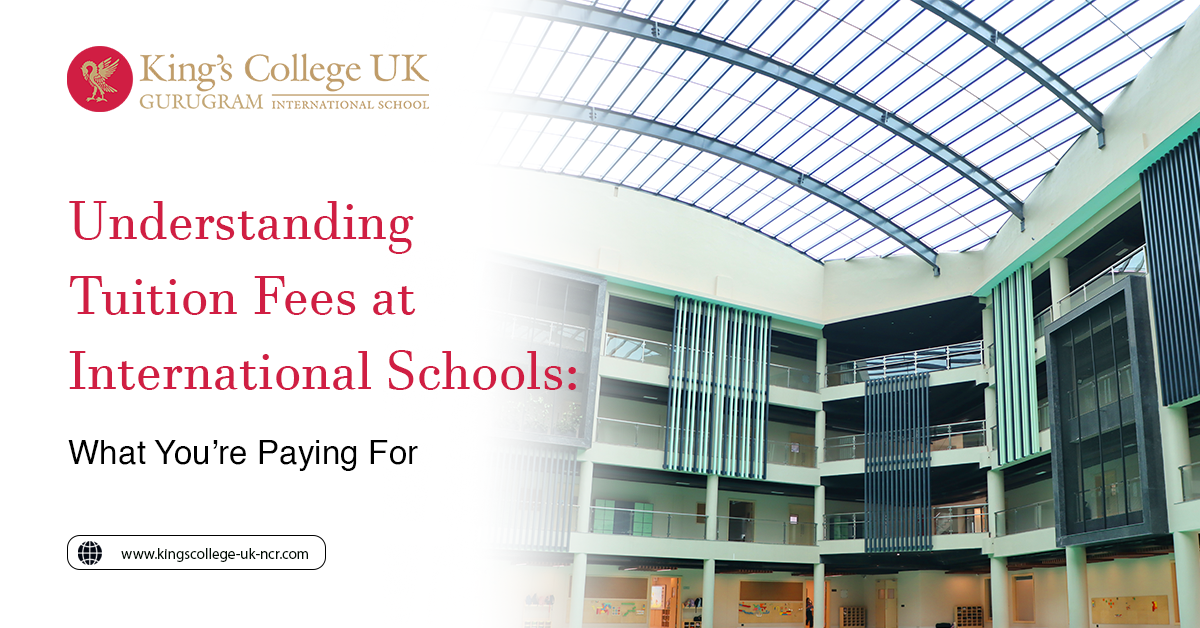
Choosing the right school is a pivotal decision that shapes a child’s academic journey, personal development, and future opportunities. For many families, international schools represent a compelling choice, offering globally recognised curricula, multicultural environments, and holistic learning experiences. However, these advantages often come at a premium. Naturally, parents are asking: What exactly am I paying for?
In this article, we delve into the real value behind tuition fees at international schools shedding light on the key elements that define the cost, and why, in many cases, the investment is wholly justified.
1. Internationally Recognised Curricula
One of the foremost drivers of tuition fees is the delivery of world-class academic programmes. Whether it’s the International Baccalaureate (IB), the British A-Levels, the Cambridge IGCSE, or the American Advanced Placement (AP), these curricula require significant institutional investment.
To maintain their accreditation and quality standards, international schools must undergo regular inspections, curriculum reviews, and teacher training. These globally benchmarked frameworks are designed not just to teach content, but to foster critical thinking, inquiry-based learning, and global awareness equipping students for success at top universities across the world.
2. Outstanding Teaching Staff
High-quality education demands exceptional educators. International schools are known for employing highly qualified faculty, often recruited from abroad, with specialised training in their chosen curricula. These professionals bring diverse perspectives, subject-matter expertise, and a deep commitment to student development.
Attracting and retaining such talent requires competitive salaries, relocation packages, ongoing professional development, and benefits all of which contribute to tuition costs. Parents can be assured that their children are learning from experienced educators who understand the nuances of international education.
3. Personalised Learning Through Smaller Class Sizes
A major advantage of international schooling is smaller class sizes. With fewer pupils per classroom, teachers are better able to tailor instruction, address individual learning needs, and provide regular feedback. This level of personalisation often results in stronger academic outcomes and greater student confidence.
Maintaining a low student-to-teacher ratio requires more faculty and resources — another key factor influencing tuition.
4. World-Class Facilities and Infrastructure
Step onto the campus of a leading international school, and you’ll likely find facilities on par with modern universities: innovation labs, design studios, performing arts centres, swimming pools, and even green campuses that promote sustainability.
These environments are intentionally designed to support not just academics, but creativity, wellbeing, and physical development. Regular upgrades, maintenance, and health and safety compliance all form part of the overall fee structure.
5. Extensive Co-Curricular Opportunities
Beyond academics, tuition fees often include access to a broad spectrum of co-curricular programmes. From sports and music to debate, coding, Model United Nations (MUN), and entrepreneurship, these activities foster essential life skills: teamwork, leadership, resilience, and emotional intelligence.
In many international schools, co-curricular participation is embedded into the learning model, not merely an optional extra. Organising, resourcing, and supervising these programmes require both manpower and investment.
6. Multicultural Environment and Global Exposure
One of the most distinctive features of international schools is their diverse, inclusive community. Students are often exposed to multiple nationalities, languages, and cultures, which enriches their understanding of the world and prepares them for global citizenship.
Creating such a culturally dynamic learning space involves specialist language support, international days, cultural exchange programmes, and community engagement initiatives all of which are reflected in the overall tuition.
7. Student Wellbeing and Pastoral Care
Modern education goes beyond textbooks. Leading international schools place a strong emphasis on student wellbeing, offering access to qualified counsellors, pastoral care staff, and wellbeing frameworks that promote mental health, resilience, and emotional maturity.
Whether it’s transition support for expatriate families, personalised academic counselling, or safeguarding protocols, these services ensure that each child is supported as an individual academically, socially, and emotionally.
8. Cutting-Edge Technology Integration
In today’s digital world, international schools are often at the forefront of educational technology. From smart classrooms and digital learning platforms to one-to-one device programmes and cybersecurity infrastructure, maintaining a tech-enabled learning environment is both essential and expensive.
Regular investment in technology ensures students gain digital literacy skills critical for the future workforce.
The Broader Picture: What Are You Really Investing In?
While tuition fees may initially appear high, they are, in essence, an investment in academic excellence, in life skills, and in a future filled with global opportunities. For parents seeking a school that nurtures the whole child in a world-class environment, the value offered by international schools is difficult to match.
Whether you’re considering the best international schools in Gurugram, exploring top international schools near me, or comparing options across international schools in Delhi Gurgaon and international schools in Gurgaon, it’s important to look beyond the headline figure. Ask instead: What kind of environment, curriculum, and opportunities do I want for my child and what am I truly investing in?
Final Thoughts
Ultimately, the right international school is one that aligns with your child’s needs, your family’s values, and your long-term aspirations. Understanding where your tuition fees go can offer clarity and peace of mind as you navigate this significant decision.
By choosing wisely and partnering with a school that delivers quality, care, and global relevance, you’re not just buying education; you’re opening a world of opportunity.

